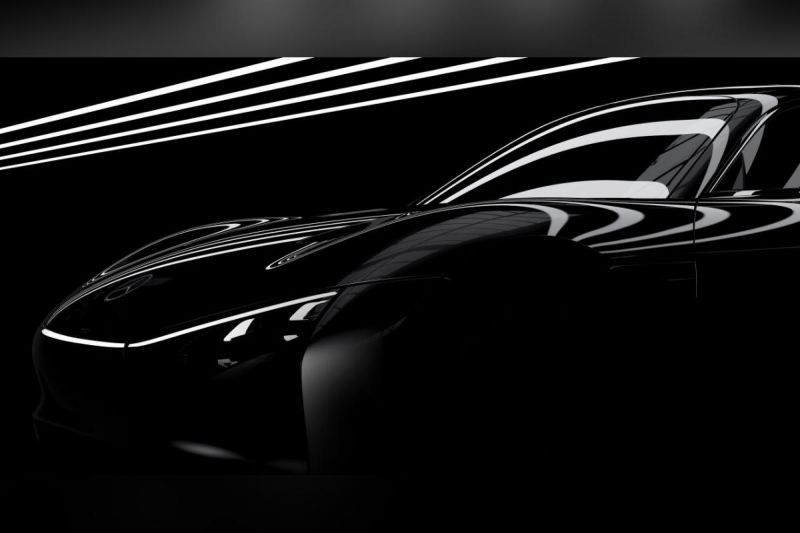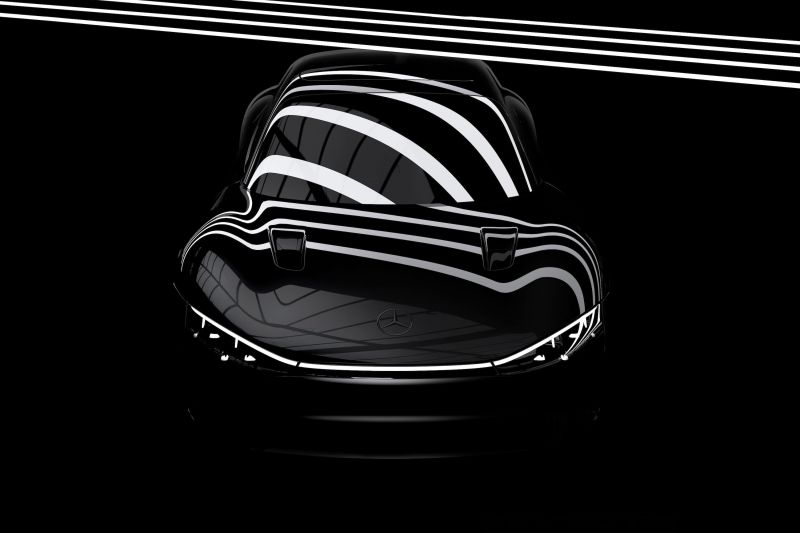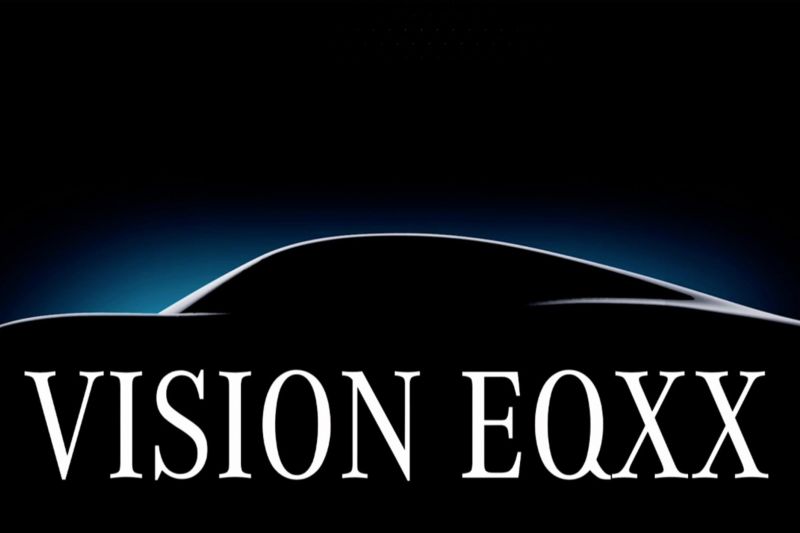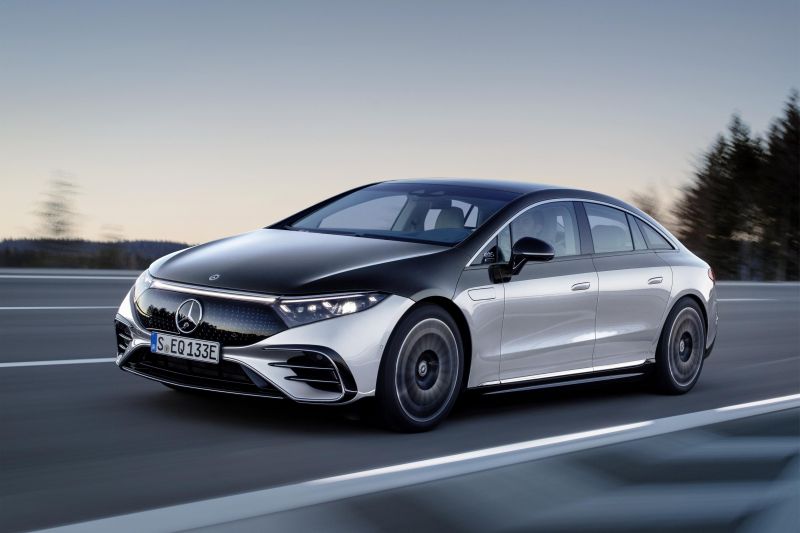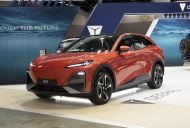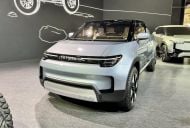Mercedes-Benz has once again teased its upcoming Vision EQXX concept ahead of its world premiere on January 3, 2022.
Shared on Linkedin by Daimler Group Research and Mercedes-Benz chief operating officer Markus Schäfer, the Vision EQXX has a claimed real-world electric range of over 1000km.
Schäfer also mentioned Mercedes-Benz is aiming for a single-digit kilowatt hours per 100 kilometre figure at “normal highway speeds”.
Joining Mercedes-Benz in the development of the Vision EQXX concept is Mercedes AMG High Performance Powertrains, which designs, tests and manufactures F1 engines for Mercedes AMG Petronas, among other F1 teams.
Teased a number of times now, the latest teaser image of the Vision EQXX Concept is still dimly lit and shows the front fascia.
There’s a LED daytime running light running from wheel arch to wheel arch, bulging fenders and a flat Mercedes-Benz three-pointed star emblem.
Previous teaser images have shown NACA ducts on the bonnet and a swoopy side profile.
Mercedes-Benz is focusing on aerodynamics and weight saving in the Vision EQXX concept rather than wedging a huge battery into its sleek concept.
Mr Schäfer said Mercedes-Benz is aiming to exceed the 0.20 drag coefficient of the EQS, which is one the world’s most aerodynamic cars.
The Vision EQXX concept could match or exceed the 2015 Concept IAA that had a drag coefficient of 0.19 as it has a similar four-door silhouette.
He also elaborated that Mercedes-Benz is working on increasing the battery cell energy density by 20 per cent compared to the EQS.
During a presentation in late 2020 that initially previewed the Vision EQXX concept, two presentation slides read “Beijing to Shanghai on one charge?” as well as “Stuttgart to Nice on one charge?”
A quick search on Google Maps reveals a road trip from Shanghai to Beijing is 1214.3 kilometres, and would take just over 12 hours.
Stuttgart to Nice, while not quite as long a trip, is an 814-kilometre journey that would take a little over nine hours.
This third teaser of the Vision EQXX concept comes as Mercedes-Benz is transitioning to electric powertrains.
The German automaker previously announced it’s “getting ready to go all electric by the end of the decade, where market conditions allow”.
It’s unclear which markets the company is and isn’t considering going all-electric in.
In July 2021 the European Union announced its plans to ban petrol, diesel and hybrid new cars from 2035.
To make this transition possible, Mercedes-Benz plans on spending €40 billion (A$62.6 billion) between 2022 and 2030 on electric vehicle (EV) technology, platforms, and vehicle development.
From 2025, Daimler will launch three all-electric architectures: MB.EA for all medium to large vehicles, AMG.EA for performance cars, and VAN.EA for light commercial vehicles.
“The tipping point is getting closer and we will be ready as markets switch to electric-only by the end of this decade,” said Ola Källenius, Daimler CEO in a prepared statement.

